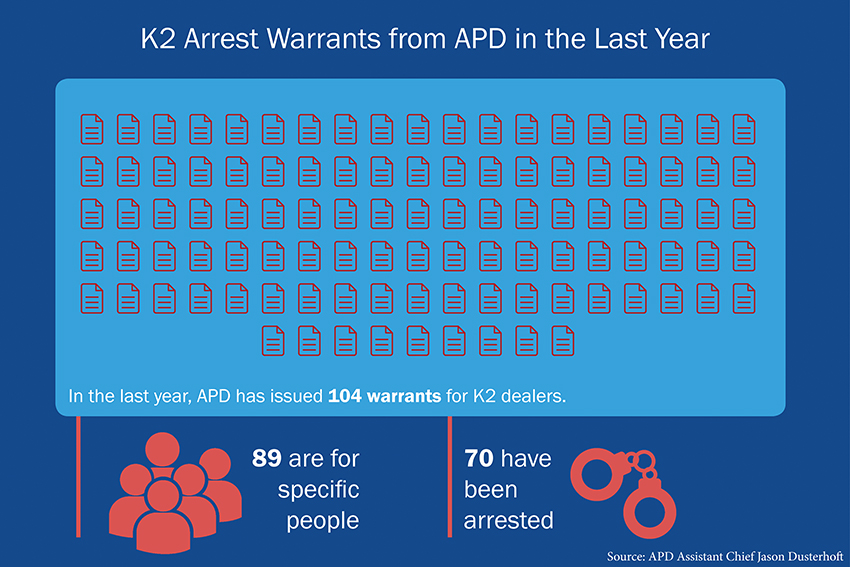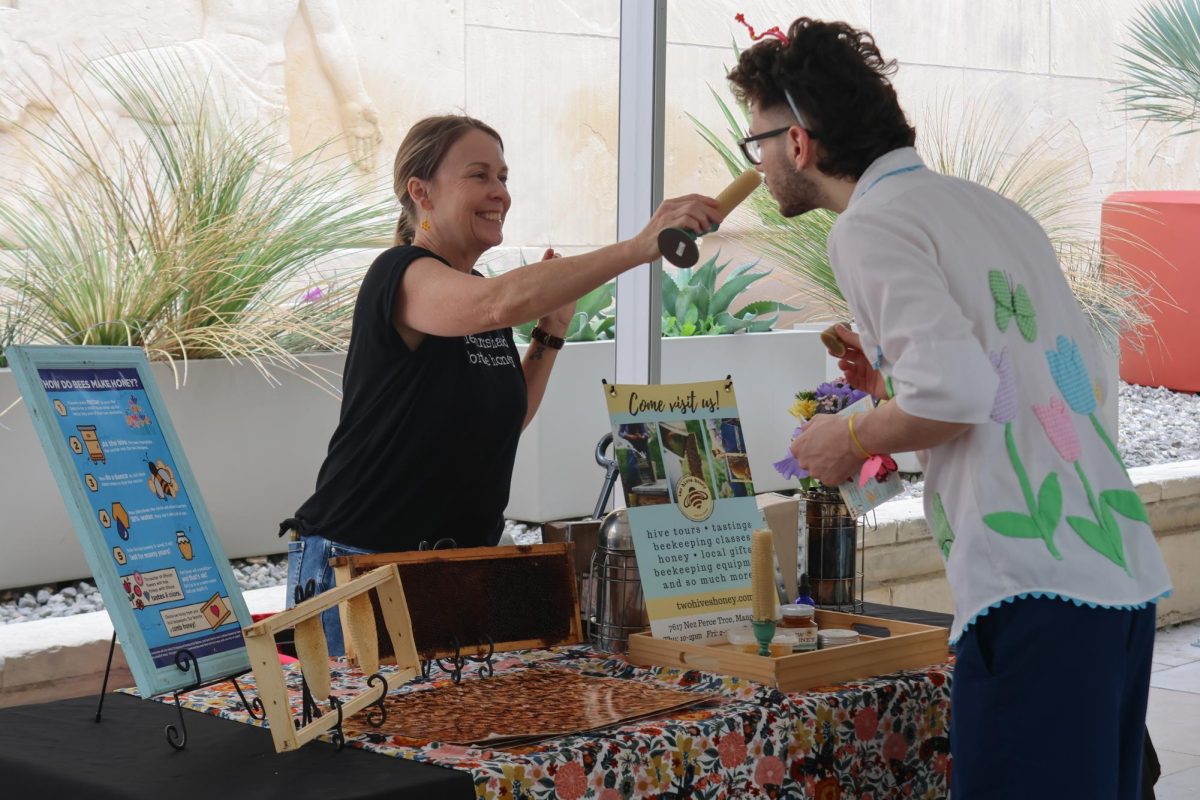Austin city leaders teamed up to crack down on the spread of K2 following an uptick in overdoses and hospitalizations in recent weeks.
K2, also known as synthetic marijuana, is a blend of industrial chemicals most commonly sprayed onto tobacco leaves and smoked. The drug has become a problem among the homeless population of downtown Austin in recent years because it is sold at extremely low prices on the street. Austin-Travis County Emergency Medical Services responded to dozens of K2 calls almost every night in the past two weeks alone, according to regular updates on their Twitter page.
Following this uptick, city leaders announced, in a joint press conference Thursday, a plan to create a multi-agency group that will provide enforcement, substance abuse support and medical care to those affected by K2. The group will include members from the Austin Police Department, the Emergency Medical Services Department, Austin Public Health and Austin-Travis County Integral Care.
“The people that are preying upon the homeless because they are homeless deserve to experience the fullest extent of our law enforcement and judicial system,” Mayor Steve Adler said at the press conference. “For those orchestrating and profiting off this misery, I don’t know if there’s a special place in Hell for that, but there is definitely a place in prison with their name on it.”
APD began increasing patrol officers around the Austin Resource Center for the Homeless, an area high in K2 calls — with 17 arrests occurring near the shelter last Monday alone, according to APD.
ATCEMS responded to over 5,000 K2-related calls between January 2012 and December 2016. Numbers have remained high since June 2015, when a record 406 K2-related calls occurred. This February, ATCEMS responded to 307 incidents, or more than 10 per day, according to KEYE TV.
K2 has been illegal in Texas since September 2015. However, law enforcement officials are presented with another problem — because of the wide range of chemicals in each batch, K2 cannot be tested for in hospitals and instead, blood samples must be analyzed in private labs.
APD has issued 104 warrants in the last year for K2 dealers, however, these warrants are difficult to obtain. Since a blood sample can take three to sixth months to be analyzed, dealers are often out on the street long before a warrant is issued, said APD Assistant Chief Jason Dusterhoft.
APD has started looking at contracting with outside labs to quicken this turn-around. In the meantime, enforcement efforts will continue to focus on K2 dealers instead of users, Dusterhoft said.
“This is a crisis,” Dusterhoft said. “We’re looking at dealers who are preying on the most vulnerable of the Austin population. We see the users as victims, and we’re not going to go after the victim.”
Services like Austin-Travis County IC and other local nonprofits plan to ramp up outreach and education efforts, as well as expand on current services for homeless individuals affected by the drug.
“Recovery and stability are not possible if the only places to live are on the streets or in the woods,” said Ellen Richards, chief strategy officer for IC. “A big part of this effort is going to mean working with our local nonprofits to expand and improve services that help get these individuals back on their feet.”





















